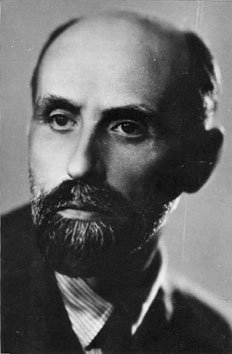 Though he would go on to win the Nobel Prize for Literature in 1956, in the early 1940’s Juan Ramón Jiménez was a refugee. A poet, who had fled Spain during the Civil War, he settled in Washington, D.C. where he worked as a professor of literature. He was an obscure and lonely man, until one day he chanced upon a man working in his garden. The man, Henry by name, described by Jiménez as “timid yet firm at the same time,” struck up a conversation with Jiménez.
Though he would go on to win the Nobel Prize for Literature in 1956, in the early 1940’s Juan Ramón Jiménez was a refugee. A poet, who had fled Spain during the Civil War, he settled in Washington, D.C. where he worked as a professor of literature. He was an obscure and lonely man, until one day he chanced upon a man working in his garden. The man, Henry by name, described by Jiménez as “timid yet firm at the same time,” struck up a conversation with Jiménez.“Of all my acquaintances in this country,” Jiménez recalled, “none have I come to understand better or more quickly.” The two men spoke the same language, the language of God and the growth of the soil, democracy, and an abiding faith in the people. Often they spoke in Spanish. Jiménez often read Spanish poems, his own and others, to his friend Henry, who in turn often spoke of his deepest spiritual convictions. Jiménez was later to write:
There can be no doubt tat this man is a mystic, made of the same stuff as the greatest of the Spanish mystics, Saint Teresa de Jesus, John of the Cross, Louis de Leon. He is as militant in his faith as they were ... Saint Terese’s “God Can be Found in a Well Watched Kettle” means to him “God can be found in a dairyman’s milk-pail and in a farmer’s corn-crib ... he is convinced of an enduring and just principle of ancestry — every man is the son of his own words and work.

Months after meeting Henry, Jiménez mentioned his friend to some colleagues who then made a shocking revelation about Jiménez’s friend. “Was it possible?” Jiménez wondered. He ran all the way to Henry’s garden, where he found his friend working alone. “Señor Wallace, tell me the truth,” Jiménez asked breathlessly, “Are you the vice-president of the United States?”
“Si, Juan Ramón, lo soy. Look, aren’t my tomatoes magnificent? Take some along with you for lunch.”


1 comment:
Wow. Very interesting. Jiménez wrote "Platero y Yo." You should read it if you haven't.
Post a Comment